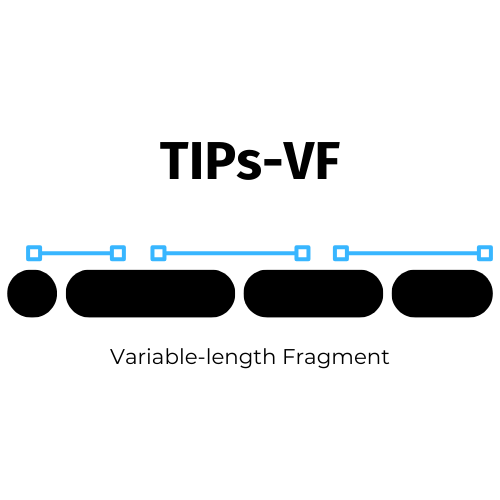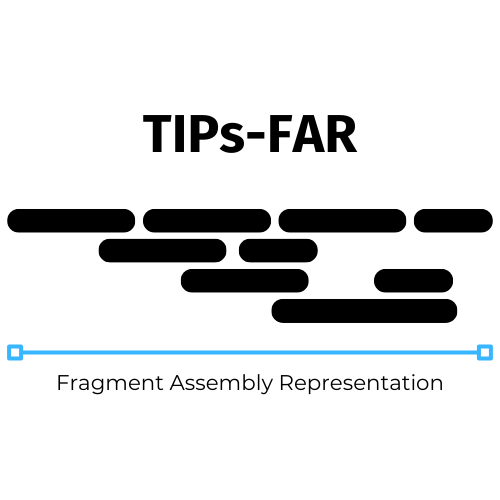Translator-Interpreter Pre-seeding (TIPs)
A family of encoding schemes for augmenting the numerical representation of genetic sequences in machine learning.
TIPs was initially developed to meet the growing demand for a more efficient numerical representation of genetic sequences in machine learning applications, particularly in genetic engineering and synthetic biology.


TIPs-VF
The TIPs-VF (Translator-Interpreter Pre-seeding for Variable-length Fragments) is a k-mer-derived, non-overlapping, and frequency-independent encoding scheme. It represents genetic sequences based on the relative proximity and directional alignment of k-mer attributes while incorporating sequence, length, and positional awareness. TIPs-VF has demonstrated enhanced performance in truncation and fragmentation analysis, sequence homology detection, motif assessment, and splice junction identification using variable-length sequences. Learn more here


TIPs-FAR
The TIPs-FAR (Translator-Interpreter Pre-seeding for Fragment Assembly Representation) is an advanced iteration of TIPs-VF with a higher-dimensional structure. It integrates the advantages of TIPs-VF in representing complex and essential genetic sequence features while incorporating an ordinal representation of each assembly unit. TIPs-FAR is currently under development for genome reconstruction and decoding, with the potential for broader applications in synthetic biology.


TIPs-HiDE
The TIPs-HiDE (Translator-Interpreter Pre-seeding for High-Dimensional Encoding) is the foundational model among the three TIPs variants. It employs dimensional encoding to represent additional sequence features, such as transcription and translation functional motifs or regions. Additionally, it captures base compositions and functional repeats essential for restriction enzyme-based cloning and genetic engineering. TIPs-HiDE is currently under development for the synthetic construction of biotech-relevant gene products and derivatives, with applications extending to medicine, agriculture, and beyond.
1. Submit
Send your sequence data for encoding with TIPs.


2. Check status
Check the status of your encoding request or view global encoding jobs.
View or download completed encoding files.
3. View archives




Quick start:
The representation of genetic data is the foundational step that ensures machine learning integration is effective and impactful, helping drive breakthroughs in synthetic biology, bioinformatics, biotechnology and beyond. Therefore, TIPs aims to bridge machine learning and genetic engineering by developing efficient and relevant encoding methods for genetic sequences.
TIPs
Translator-Interpreter Pre-seeding, a family of encoding schemes for augmenting the representation of genetic sequences in machine learning.
© 2025. Marvin De los Santos. All rights reserved.
